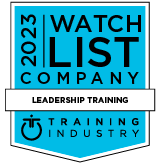Let's Talk Leadership - What Have we Learnt About Leadership?

30,000 people have gone through our experiences in the last seven years.
I personally have trained approximately 10% of that number. Many, thousands and more, over the 22 years I have been in this industry.
What has been the one key thing we have really learnt after all this time?
In terms of great leadership, we’re not there yet. No-one is. I’d go as far as to say we have gone backwards in 22 years.
We all have a really, really, long way to go.
There's a school of thought that goes,
“Don't believe what you read on LinkedIn. Many HR teams rate their leaders way higher than the employees do. When you actually look at the leader’s effectiveness it doesn’t stack up.”
Strong stuff.
Go check out green door or look at the qualitative data from engagement surveys. Are the turnover rates above 10%?
It’s time to reflect.
I was just speaking to a client the other day.
I always heard that they had this amazing company culture from my HR contacts, but the reality was, when I had lunch with one of their leaders, they said that:
“We speak a good game with our so called values and drive for inclusion, but results come first. Period. When the going gets tough, people come second. It is what it is.”
“In these big public companies, it’s all mumbo jumbo. When you got shareholders, you got to get a result, for them. That’s the truth. They don’t care about the humans. When times are good, everything is good. The moment we miss a number, we forget people.”
So, what we're seeing is that there is still a huge divide between what companies are saying about their culture externally, and what’s really going on internally. At the end of the day, when it comes down to it, money matters.
“It’s still America, and we are still light years behind the rest of the world when it comes to doing what's right for our people”.
It’s tough to be honest, but that’s what we're seeing. We are seeing HR say one thing, “everything is amazing”, and the people on the front lines saying another, “it’s far from amazing”.
So poor old leaders are doing the best they can, but their company has no true people first culture. Why should the CEO put people first when all that matters is the bottom line? Leader’s hands are tied due to short-termism.
It’s unfortunate what we're seeing. But there’s a light at the end of the tunnel because there are diamonds in the rough and a desire for change.
“If we don't change, we don't grow. If we don't grow, we aren't really living.”
- Gail Sheehy
The people we train, they want to make a change. They want to try and do good and be better. I live by the saying, “Change 1, Change 1000’s.”
But what we’re seeing is many leaders don't know they’re not doing good.
The question to ask yourself is, “How can I get better if I don’t know what to get better at?”
You can assume what you need to improve, but don’t make an ass out of you and me.
So, what’s the missing piece here?
Self-awareness.
Unfortunately, many of us don't have the environment to be self-aware because our boss’s priority is the money. Its all ahead go, all of the time. Meeting to meeting. Squeeze every cent out of every corner. How can anyone reflect on their own leadership, is they have no time to reflect!?
So, until you change that, nothing is going to change. I rarely see a learning culture where there is intentional time to learn and reflect supported and expected from the top.
“If you don't like something, change it. If you can't change it, change your attitude.”
-Maya Angelou
Although, it’s not all bad, there is some good out there.
Client Success Story: Dober
Dober was a company where they thought they were doing great. In relative terms, they were. They had the greatest of intentions of having a workplace worth working for, they just didn’t know-how to effectively strengthen what they had started from the top down consistently.
Today, they have renovated their company core values and have become even more human-centric than they were already. There is always room for improvement. ALWAYS.
How? Quite simply, DX. Ducibus eXperentia is Latin for leadership experience and we gave them an effective leadership experience at the executive level to allow them to see why, what, and how, they could get better.
Cultural improvement doesn’t just happen magically. You must be deliberate about it. You must create the systems, processes, and provide the north star and boundaries for people; you must train leaders to be the culture champions.
Dober is a great example of what happens when someone is self-aware and believes.
Company owner, Chris Dobrez, believed. He wanted to create a place for people to thrive. A culture of courage.
His company is a wonderful example of doing it right.
Culture is more than ping pong tables, a cool coffee machine, and half-day Fridays.
Culture is a deliberate act. Culture is a mirror of leadership. Leadership is a result of what you value and how you behave. You want a great culture. You need great leaders.
For this culture to work everyone's got to think and behave ain alignment to the north star. Consistently.
It starts with the CEO. The CEO must believe it and demonstrate it. At DX Learning, we take the blinkers off them and their teams.
These success stories are where we made the most impact - where we work with someone who's got the best of intentions for themselves, the company, the people. But they don’t know how to do it. Nor should they. Its not their job. That’s our job!
You've got to show them that what they thought was amazing, is good, but not amazing.
The next part is to stimulate a growth mindset. Show what needs changing and inspire them to change. That’s where success lies.
What Difference Made the Most Impact?
The most impact is when the CEO is the culture champion and it's not delegated to HR.
When the responsibility of company culture is delegated to HR, it’s the beginning of the end.
The CEO and executive team are the culture. The culture of the organization is a mirror of their leadership. It’s the beginning of a culture that works. Start from the top and work your way down.
This is what the above examples like Dober have done. They ensured the leadership team owned the culture. It’s not delegated to HR. Of course, they support it, but they don’t own it.
Culture is the responsibility of the CEO
What does this mean? People stay when you do it right. Create a great culture.
Going back to MIT Sloan’s review,
“Toxic culture is the biggest contributing factor to people leaving (in relation to money.)”
When you create a great culture, people will stay.
Again. Culture is a mirror of leadership – it’s how you think, act, hold yourself accountable and take ownership.
Feedback From the Programs
“I didn't know what I didn't know, I now know.”
Same message each time. “Thank you for showing me what I didn't know.”
“While it’s a shock, it's good that I now know so I can make changes, because you can't change what you don't know needs to change.”
What Are We Seeing When It Comes to Modern Leadership?
What we mean by modern leadership is an empathetic and inclusive approach to how you lead people.
What does that look like? It’s CARE-ing for those you serve.
And here’s how it works:
- To do it effectively you’ve got give clarity to those you serve. Clear expectations, an understand of why, and a shared purpose. Take the anxiety of ambiguity out of the equation.
- To do it effectively you’ve got to give autonomy. People need to know they have choices to make and have some control over decisions, versus being controlled and micro-managed.
- To do it effectively you’ve got to build relationships on a human level. People need to know they belong and there are valued as a human. Motives will be questioned if that does not happen.
- To do it effectively you've got to treat people how they want to be treated to be seen as equitable.
You have got to CARE. That’s modern leadership. Clarity, autonomy, relationships and equity® . CARE: The Four Essentials of Psychological Safety to Inspire High Performing Teams.
At DX Learning, we are bridging the gap between what people think and what people know. We're showing them that even though they talk a good game, talk is cheap.
It's about what you do.
Take those bad habits, layer on top some better ways to think about how you show up. You can't change biases, but you can change habits.
Get in touch with us today to renovate your company values, wipe out bad leadership, and create a culture worth working for.
Insights

Subscribe to Our Monthly Newsletter!
For managers and talent professionals who truly believe in putting people first, the CARE to Win blog is your gateway to the latest insights on human-centric leadership. Join us as we champion the people first movement.
Need some time apart? Are we emailing you too often? Just give us your feedback, and we promise we’ll respond. We really do care. And if it’s still too much, just unsubscribe. It’s cool.
.jpg) Alex Draper
Alex Draper





